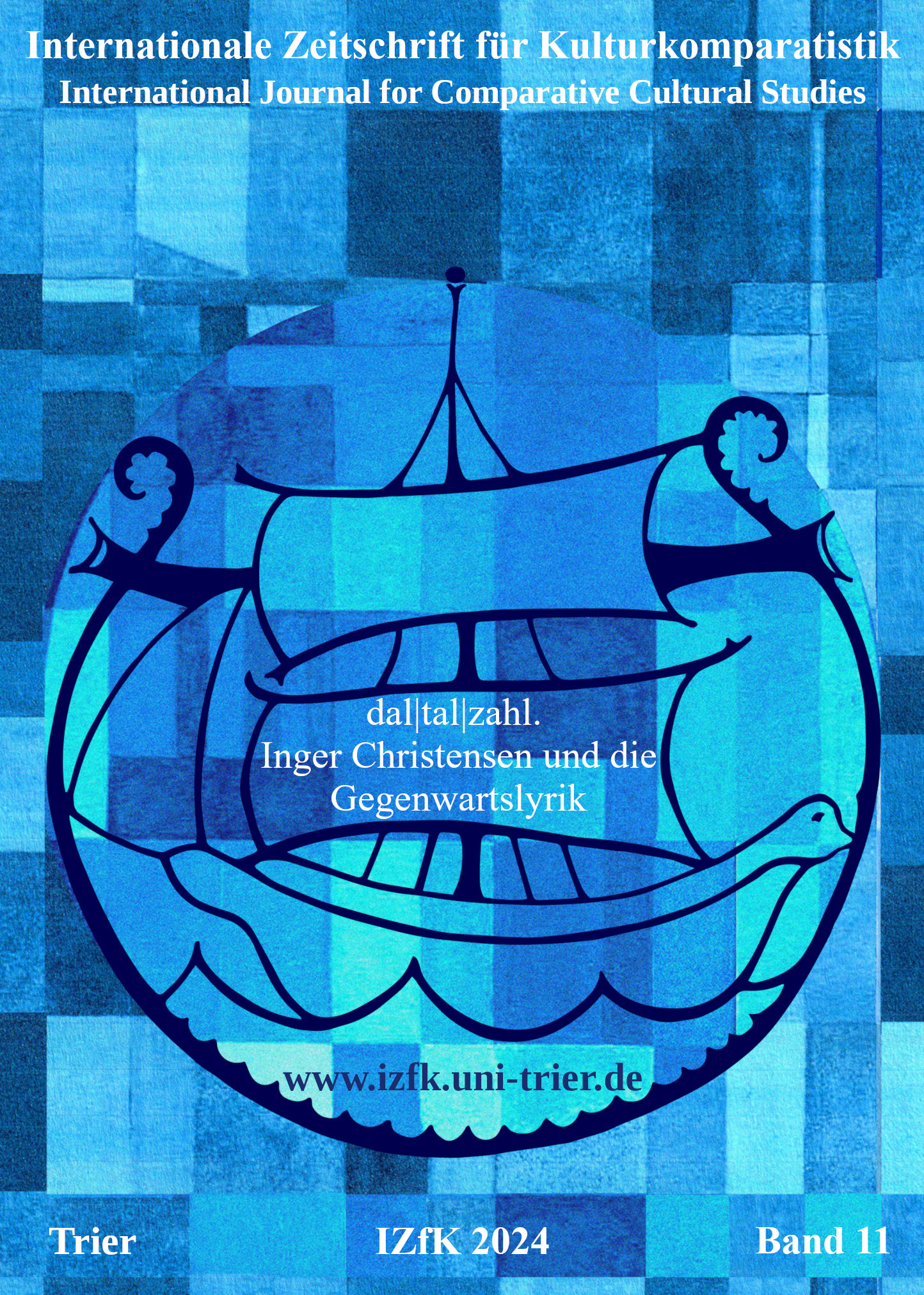Textile Textuality in Inger Christensen: “Letter in April” and Amalie Smith: “Thread Ripper”
Main Article Content
Abstract
Departing from Roland Barthes’ association of text and textile, and feminist theory on weaving as text production, this article analyzes the textile qualities of Inger Christensen’s “Letter in April” (1979) and Amalie Smith’s “Thread Ripper” (2020). In “Letter in April”, Christensen establishes a connection between writing and spinning or weaving through their shared temporality of varied repetition. In “Thread Ripper” Smith alludes to Christensen and makes of the continuity between text and textile not only the main theme of the book, but also its structuring principle. Through a materialist conception of the text, regarding it as a woven fabric, the article focuses on the textual patterns of the two works (stylistic figures in Christensen, graphic composition in Smith). The connection from Christensen to Smith leads to a further connection to ecocritical conceptions of weaving as no less than a cosmological principle. On a concluding note, the article argues that weaving is not only connecting, but also disconnecting, cutting.
Article Details

This work is licensed under a Creative Commons Attribution 4.0 International License.

